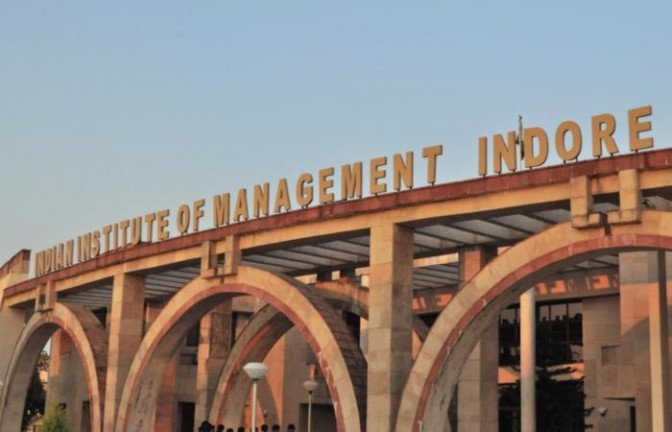RBI influences the interest rates to boost economic growth and control inflation. Inflation is an increase in the prices of goods and services in the economy. The country is facing high inflation for the last 2-3 years .
To control inflation, the RBI has raised effective policy rates by 525 basis points in 13 sequential steps since March 2010 in an effort to control stubbornly high inflation, making it the most aggressive central bank in the world to maintain a strict monetary policy stance despite global economic slowdown. The RBI’s measures are expected to suck out a substantial sum from the banks. In effect, while the economy is booming and the credit needs to grow, the central bank is tightening the availability of credit.
The RBI can address only the demand side through such an approach. The need of the hour is to curb only consumption credit and not production. On the other hand there is urgent need to increase supplies of food products and manufactured goods, for which credit flow to the farm sector and industry must increase(Inflation now predominantly is due to supply side constraints). But, surprisingly, instead of giving any attention to the supply factors, by simply lowering money and credit in the market, the RBI is artificially pushing demand down. It is stifling the needs and requirements of the consumers and is attempting to create an illusion that there is no demand.
The current rise in rates would only make the cost of funds expensive for both developers and buyers coupled with constant increases in input costs making the business environment very complex across industries. This had an adverse affect on future investments and expansions plan of the various sectors which will fuel unemployment and low income.
These were visible from deceleration in IIP (index of industrial production) during April-May 2011 and in the consumption of cement, steel and automobiles during Q1 of 2011-12. IIP has decelerated to a growth of 5.8 per cent in April and further to 5.6 per cent in May, down from a rapid 13 per cent growth in April 2010 and 15 per cent growth in March 2010 respectively. The IIP further reduced to 4.1% in August 2011. The effects of slower growth have also been seen in sales from real estate to car sales. Demand for real estate is a factor of economic growth. The sector has now taken a serious body-blow with the combined onslaught of increased cost of land and construction, eventually making finished real estate products more expensive. Increased mortgage rates will only compromise demand further.
Why RBI’s monetary measures are not very effective in current scenario?
RBI cannot alone control the economic growth and inflation as it does not have control over other Government spending. Increase in the government spending will result in more income and more money in the hands of people thus resulting in high inflation. There should be balance between monetary and fiscal policies.
Even if RBI changes the Interest rate, the banks are reluctant to change their rates immediately, as a result there are no immediate effects seen.
The Indian Rupee crossed 51 mark against the US Dollar. The last time these prices were seen were in March 2009. This is likely to fuel inflation as imports will become expensive.
Unless supply bottlenecks are addressed and adequate steps taken to ensure enough supply, the RBI moves to curb inflation will have a minimal effect.
Current Important Rates :
Bank Rate : 6%
Repo Rate : 8.5%
Reverse Reporate : 7.5%
Suggestions :
1. The RBI already regularly issues master circulars, through which they direct various aspects of banking and certain corporate matters. The RBI also regulates and governs matters regarding inflow of foreign funds, foreign institutional investment (FII) into India, Utilization of External Commercial Borrowings etc. The RBI does so for various reasons, specially because not all sectors and industries are at the same level. Some would benefit from external input while some would be best left alone.
2. For the purpose of bolstering agricultural growth, development of infrastructure and all other avenues which the RBI may deem fit, it may lay down regulations to direct money either directly or indirectly with special importance to these sectors. To direct foreign capital in these fields and thus bolster infrastructure would not be a difficult task, as the RBI already does this function. Only this time it shall do it with the purpose of meeting the ever – rising demand.
3. The government would also have to play an important role in controlling inflation without harming the economic growth by ensuring greater transparency in the RBI’s sterilisation operations. The Governments at the Centre and the States should take urgent action to make available adequate credit at competitive interest rates and offer other incentives. Inflation can be contained only if supply-side and demand issues are effectively addressed, apart from initiating appropriate fiscal and monetary measures.
[ The article has been written by Shashwat Krishn . He has over 3 years of experience in IT domain and is an MBA in Banking Management from NMIMS, Mumbai. ]
You might like reading:
Influence-r Marketing- Is it the next big thing in marketing?
Influence-r Marketing- Is it the next big thing in marketing? The digital era has opened various new channels to target potential buyers and enhance engagement with the existing customers. In other words, the latest developments in technology has given an opportunity to firms to interact through new channels. The various digital marketing tools currently used by many fortune 500 companies […]

IIM Indore Placements 2015: Average Salary at 14 lacs
IIM Indore has once again completed its placement season for 2014-15 successfully. The batch had a total of 508 students (including Mumbai campus) and saw 93 PPOs being offered to the batch. Roles & Recruiters General Mananagement Airtel, Mahindra & Mahindra, Reliance Industries, Tata Communication, and Cipla were the major recruiters for the profiles of General Management. Banking & Financial […]































